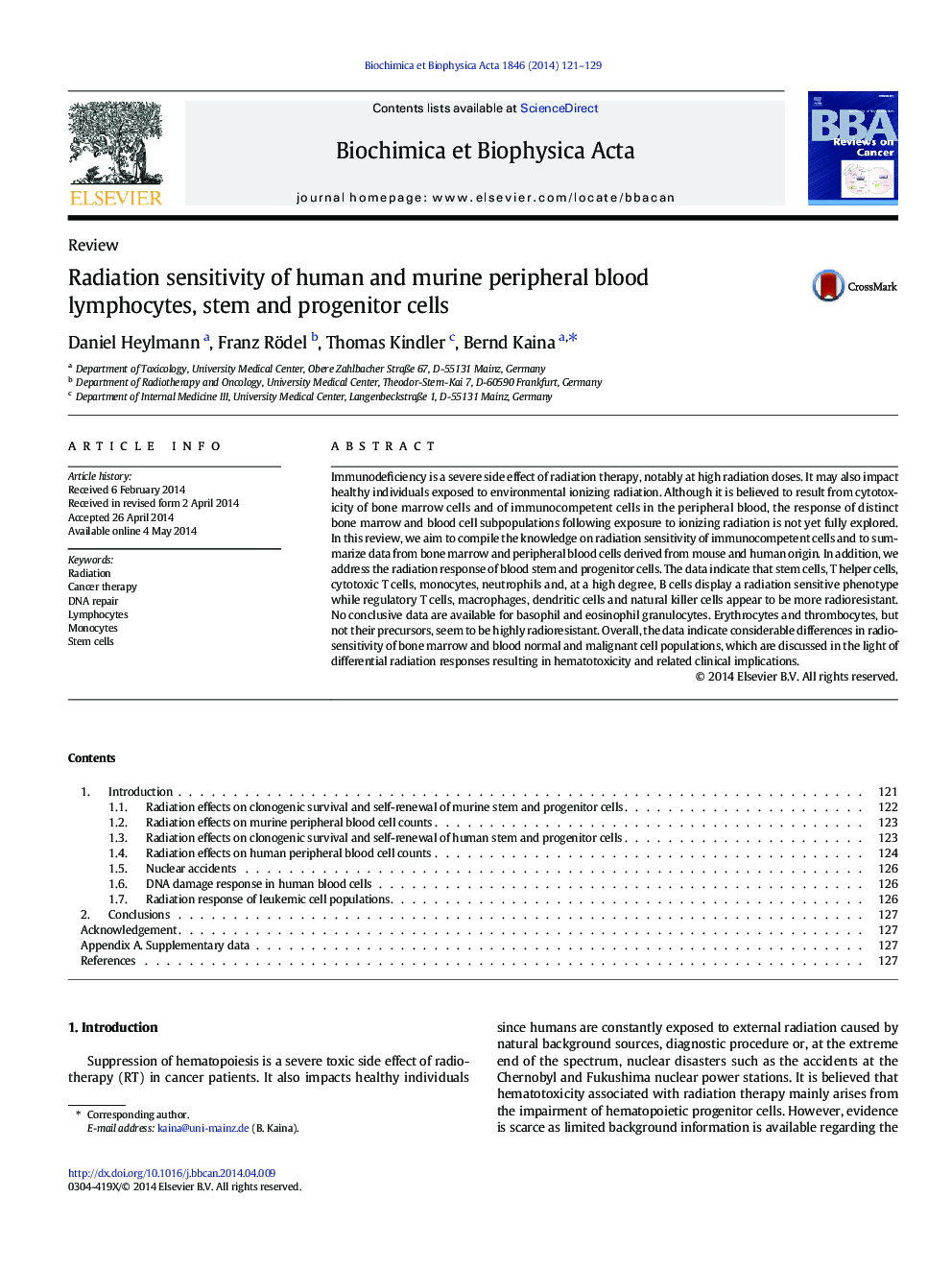| Article ID | Journal | Published Year | Pages | File Type |
|---|---|---|---|---|
| 10895594 | Biochimica et Biophysica Acta (BBA) - Reviews on Cancer | 2014 | 9 Pages |
Abstract
Immunodeficiency is a severe side effect of radiation therapy, notably at high radiation doses. It may also impact healthy individuals exposed to environmental ionizing radiation. Although it is believed to result from cytotoxicity of bone marrow cells and of immunocompetent cells in the peripheral blood, the response of distinct bone marrow and blood cell subpopulations following exposure to ionizing radiation is not yet fully explored. In this review, we aim to compile the knowledge on radiation sensitivity of immunocompetent cells and to summarize data from bone marrow and peripheral blood cells derived from mouse and human origin. In addition, we address the radiation response of blood stem and progenitor cells. The data indicate that stem cells, T helper cells, cytotoxic T cells, monocytes, neutrophils and, at a high degree, B cells display a radiation sensitive phenotype while regulatory T cells, macrophages, dendritic cells and natural killer cells appear to be more radioresistant. No conclusive data are available for basophil and eosinophil granulocytes. Erythrocytes and thrombocytes, but not their precursors, seem to be highly radioresistant. Overall, the data indicate considerable differences in radiosensitivity of bone marrow and blood normal and malignant cell populations, which are discussed in the light of differential radiation responses resulting in hematotoxicity and related clinical implications.
Related Topics
Life Sciences
Biochemistry, Genetics and Molecular Biology
Cancer Research
Authors
Daniel Heylmann, Franz Rödel, Thomas Kindler, Bernd Kaina,
